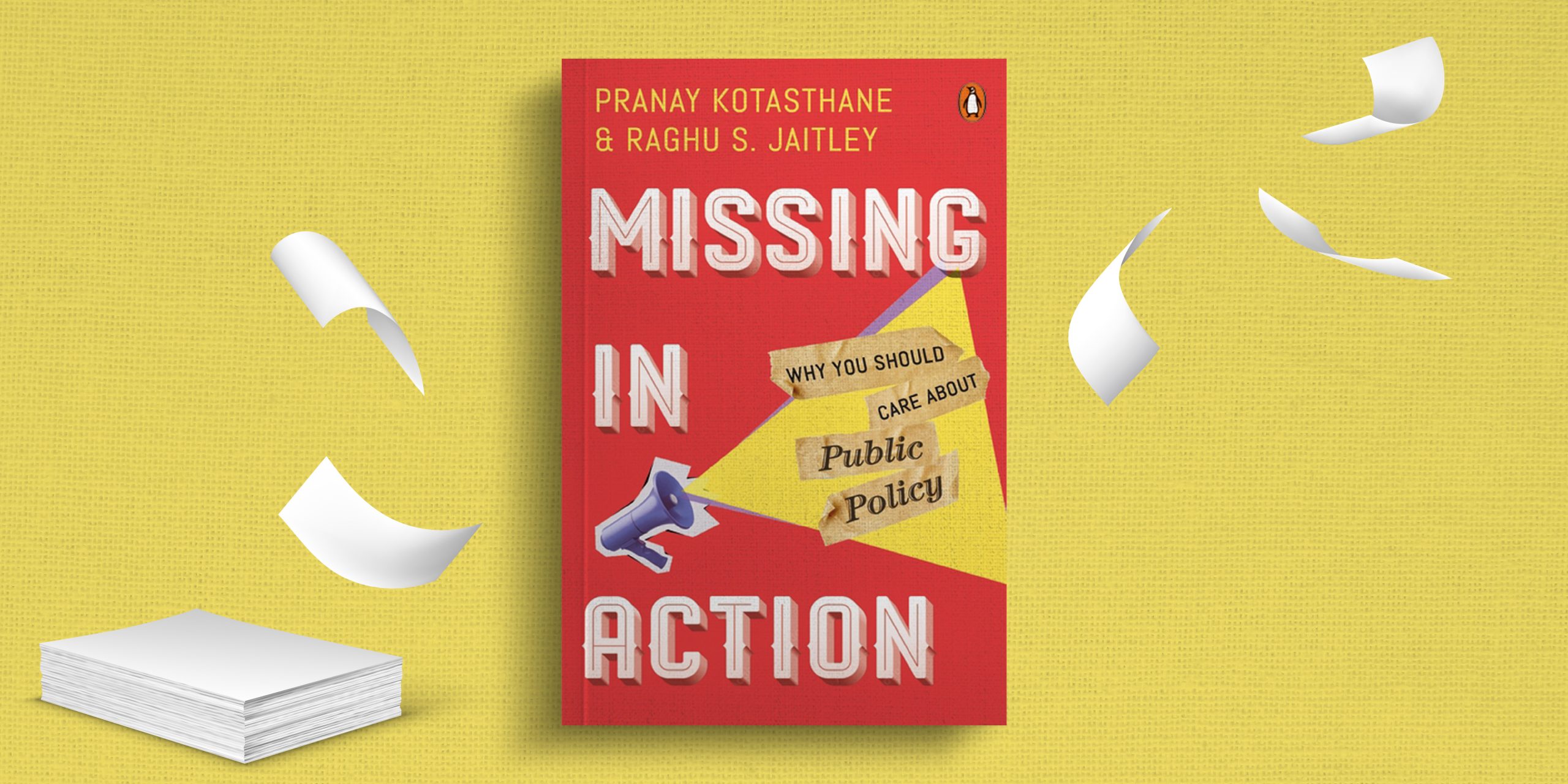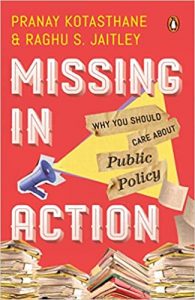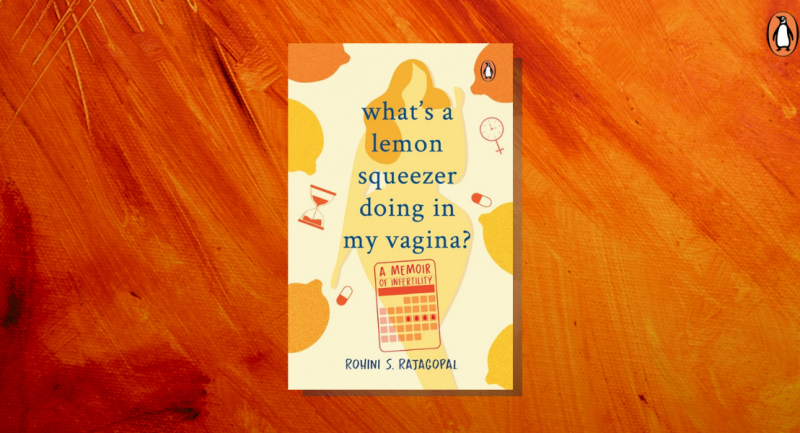
You might wonder, why should you, a common Indian citizen, bother about learning public policy concepts; shouldn’t we take these ideas to those who make policy—our politicians and bureaucrats—instead? We believe that in a democracy, the government mirrors society more often than it directs our choices. Missing in Action is an engrossing, interesting, and educational read that you should pick up right now!
Read this excerpt from the chapter titled ‘Making Public Policy Interesting Again’.

Missing In Action
Pranay Kotasthane, Raghu S Jaitley
A good place to begin is to think of the beliefs we need to let go of before learning public policy.
Belief 1: What I Know Is Golden, So I Can’t Let Go of It
The first step is being open to the process of unlearning. Our prescriptions for policymaking are shaped by our
experiences, perceptions, and memory. Neither of the three sources is a true representation of reality. Hence, an unrelenting defense of what we have already learned is like falling into the trap of watching a sequel of a boring movie because you have already spent money on the first part.
Belief 2: Good Intentions Translate to Good Policies
This is a tough one to unlearn. This principle calls for dissociating the intentions behind a policy from its outcomes.
Most government policies have noble intentions. Yet, many of them do not have the desired consequences. How should we, as citizens, judge government actions then? The default response in India seems to be to evaluate a policy based on the stated intentions alone. Once things start going wrong, the blame is placed on poor delivery, corrupt politicians, and inefficient bureaucrats.
There are two problems with this approach of evaluating policies. First, intentions are difficult to gauge. Few government policies are made with a stated malintent in any case. Thus,
judging intentions is an unhelpful guide for evaluating policies. Next, imagine we had an insight into the minds of our policymakers, and we could decipher their intentions perfectly. It would still be unhelpful to evaluate policies based on intent simply because even the best motives can lead to terrible consequences.
Take the case of alcohol prohibition in Mumbai which began in 1949 with the noble intention of preventing alcoholism. As a policy, it turned out to be one of the reasons why the ‘underworld’ flourished in that city. First, it made bootlegging a viable business and encouraged smugglers to get into it. These operators then used this money to diversify into other illegal activities. Eventually, a strong police–underworld–politician nexus developed. There are a number of accounts tracing the rise of underworld figures such as Varadarajan Mudaliar and Haji Mastan to this well-intentioned policy called prohibition. As citizens, we must evaluate policies based on their intended and unintended consequences, and not fall into the trap of judging intentions.
Belief 3: India’s Bane Is That While the Policies Are Good, Their Implementation Is Bad
A common refrain in our public discourse follows this narrative—a ‘fantastic’ policy failed because its implementation was botched up. There was nothing wrong with the policy per se, it’s just that the inept bureaucracy or worse—the evil citizens—that came in its way. This is a fallacy because a policy formulated bereft of implementation details cannot be termed a good policy. By blaming implementation alone, we are letting governments off the hook easily. The government has resources and expertise at its command to anticipate at least some of the implementation challenges, stakeholder attitudes, and unintended consequences. Hence, we need to hold the government to higher standards when evaluating policies.
Belief 4: Certainty and Consistency of Views Over a Long Period Is a Hallmark of Good Policy Analysis
An evidence-based policymaking attitude demands that we don’t let our ideology interfere with our judgment. Too often, we fall into the trap of defending an ideology we hold dear.
Belief 5: Economics Is About Picking Your Poison—Capitalism or Socialism
Economics is the bedrock of good policy. Given its focus on incentives, it provides a lens through which we can anticipate policy outcomes. For example, economic reasoning allows us to anticipate that a price cap on cinema tickets will raise the price of the popcorn sold at the stall outside it. Economics is certainly not about eulogizing the patron saints of economic theories, whether it be Karl Marx or Adam Smith. As long as our efforts are aimed at substantiating why and how human beings behave, we can aim to have policies that can build the right incentives, nudges, or restrictions. Being wedded to an economic theory in the face of contradictory evidence is repeating the folly described in belief 3.
In reality, public policy is an applied discipline that requires understanding human motivations from different lenses. Sociology, psychology, philosophy, ethics, are all immensely helpful. Even so, economics is the core discipline to understanding policymaking.
**
Intriguing information, right? Start reading Missing in Action now! Get your copy of Missing in Action from the nearest bookstores on Amazon.









